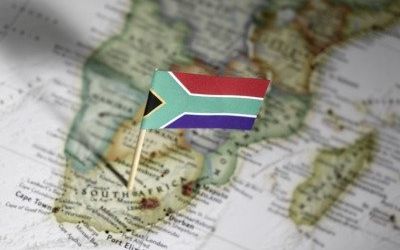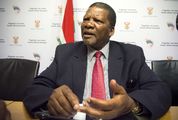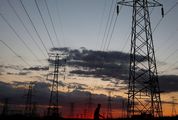SA needs to build strong industrial base
by Gumani Tshimomola
2016-06-14 05:54:16.0
UNLIKE President Thabo Mbeki’s administrations, whose economic policy choices were catastrophic and could only produce jobless growth, President Jacob Zuma’s administration has no choice but to seek any form of growth regardless of economic policy or its implication thereafter. In a situation were SA’s sovereign rating is hanging by a thread and is likely to be downgraded to junk status if the government does not keep promises to appease the markets, jobs will be the last thing on the Zuma’s administration mind.
When Mbeki became a president 1999, having been a central figure in the African National Congress’ (ANC’s) shift towards market-friendly economic policies, his administration did nothing but seek growth, with the hope of trickle down benefits. As it turned out, Mbeki’s economic policy — in line with the conventional wisdom of the World Bank and International Monetary Fund (IMF), limited state involvement in the market and allowed private sector growth.
Mbeki presided over SA’s highest economic growth rate in the past 35 years, with an average annual rate of 4.1%. Unfortunately for Mbeki, the growth was jobless, based on speculative market gains and the export of mineral resources, and was therefore incapable of translating into an industrially productive economy. The Mbeki administration understood this well, especially the National Treasury and Presidency, but relied on a pie-in-the-sky outcome. As a result, the broad unemployment rate increased from 31% in 1995 to 39% in 2005.
However, today Zuma’s administration has no choice but to keep whatever promises Finance Minister Pravin Gordhan has made on behalf of government, business and labour to the rating agencies and investors. That is the consequence of what has been termed the "attempt to capture Treasury", when Zuma replaced Nhlanhla Nene with relatively unknown parliamentary benchwarmer and now co-operative governance and traditional affairs minister Des Van Rooyen without consideration to the fragile economy. Zuma seems to have given in to pressure from the rating agencies, and the chorus now is we must all work together for the good of the sovereign rating.
Where does this leave job creation? Many will argue that economic growth and job creation go hand-in-hand. But with SA’s recent experience one can confidently argue otherwise. Companies are hoarding more than R700bn in cash and low-yielding instruments due to their reluctance to invest. International investors put their money in high-risk speculative stocks with a quick return instead of industry-stimulating investment. So, even if SA restores confidence and encourages private sector-led growth, again one can safely argue that there is no guarantee that this will lead to job creation.
The Department of Trade and Industry claims that government is the driver of economic transformation through deliberate and co-ordinated state-intervention. But in reality government has no access to the economy it claims to be a driver of, and this is by government’s own admission. In March this year Deputy President Cyril Ramaphosa told black professionals and businesses at an ANC gathering that "for far too long, this economy has been owned and controlled by white people. This must come to end", a clear indication that government has no control over the economy. This is compounded by the alliance of a mixed bag of ideologies in government, and as a result the ANC is stuck trying to satisfy the South African Communist Party, union federation Cosatu and now the markets. What is happening is nothing more than putting a band-aid on an open wound, without a clear and decisive solution to treat it permanently.
What must SA do? It is about time the country as a whole — workers, business and political parties — appreciated the need to go back and build a strong industrial base. We must produce finished products from toothpicks to microphones, teaspoons and motor parts rather than importing them. And the reality is that only government is in a position to lay this foundation. This will not happen by giving incentives and subsidies — the state must own the means of production, lead manufacturing and ensure the products that are produced are in line with the needs first of government — infrastructure, education, health and so on — and then society broadly.
There might be a backlash from the markets. But with a clear and decisive step-by-step implementation plan, as much as it may not be comfortable at first, in the long run an expanded industrial base will create jobs and economic growth. Investors will not look at the sovereign rating for an investment incentive, but focus on what the country has to offer.
To go back to the point made earlier, whatever economic growth SA may see as drivers such as electricity supply stabilise, is not likely to produce many jobs. If the recently reported 1.2% gross domestic products (GDP) contraction in the first quarter of 2016 is anything is to go by — it may be some time before we achieve any growth. It is time government leads industrialisation from the front.
• Tshimomola is a senior researcher for the Economic Freedom Fighters’ parliamentary caucus

Picture: SUPPLIED
UNLIKE President Thabo Mbeki’s administrations, whose economic policy choices were catastrophic and could only produce jobless growth, President Jacob Zuma’s administration has no choice but to seek any form of growth regardless of economic policy or its implication thereafter. In a situation were SA’s sovereign rating is hanging by a thread and is likely to be downgraded to junk status if the government does not keep promises to appease the markets, jobs will be the last thing on the Zuma’s administration mind.
When Mbeki became a president 1999, having been a central figure in the African National Congress’ (ANC’s) shift towards market-friendly economic policies, his administration did nothing but seek growth, with the hope of trickle down benefits. As it turned out, Mbeki’s economic policy — in line with the conventional wisdom of the World Bank and International Monetary Fund (IMF), limited state involvement in the market and allowed private sector growth.
Mbeki presided over SA’s highest economic growth rate in the past 35 years, with an average annual rate of 4.1%. Unfortunately for Mbeki, the growth was jobless, based on speculative market gains and the export of mineral resources, and was therefore incapable of translating into an industrially productive economy. The Mbeki administration understood this well, especially the National Treasury and Presidency, but relied on a pie-in-the-sky outcome. As a result, the broad unemployment rate increased from 31% in 1995 to 39% in 2005.
However, today Zuma’s administration has no choice but to keep whatever promises Finance Minister Pravin Gordhan has made on behalf of government, business and labour to the rating agencies and investors. That is the consequence of what has been termed the "attempt to capture Treasury", when Zuma replaced Nhlanhla Nene with relatively unknown parliamentary benchwarmer and now co-operative governance and traditional affairs minister Des Van Rooyen without consideration to the fragile economy. Zuma seems to have given in to pressure from the rating agencies, and the chorus now is we must all work together for the good of the sovereign rating.
Where does this leave job creation? Many will argue that economic growth and job creation go hand-in-hand. But with SA’s recent experience one can confidently argue otherwise. Companies are hoarding more than R700bn in cash and low-yielding instruments due to their reluctance to invest. International investors put their money in high-risk speculative stocks with a quick return instead of industry-stimulating investment. So, even if SA restores confidence and encourages private sector-led growth, again one can safely argue that there is no guarantee that this will lead to job creation.
The Department of Trade and Industry claims that government is the driver of economic transformation through deliberate and co-ordinated state-intervention. But in reality government has no access to the economy it claims to be a driver of, and this is by government’s own admission. In March this year Deputy President Cyril Ramaphosa told black professionals and businesses at an ANC gathering that "for far too long, this economy has been owned and controlled by white people. This must come to end", a clear indication that government has no control over the economy. This is compounded by the alliance of a mixed bag of ideologies in government, and as a result the ANC is stuck trying to satisfy the South African Communist Party, union federation Cosatu and now the markets. What is happening is nothing more than putting a band-aid on an open wound, without a clear and decisive solution to treat it permanently.
What must SA do? It is about time the country as a whole — workers, business and political parties — appreciated the need to go back and build a strong industrial base. We must produce finished products from toothpicks to microphones, teaspoons and motor parts rather than importing them. And the reality is that only government is in a position to lay this foundation. This will not happen by giving incentives and subsidies — the state must own the means of production, lead manufacturing and ensure the products that are produced are in line with the needs first of government — infrastructure, education, health and so on — and then society broadly.
There might be a backlash from the markets. But with a clear and decisive step-by-step implementation plan, as much as it may not be comfortable at first, in the long run an expanded industrial base will create jobs and economic growth. Investors will not look at the sovereign rating for an investment incentive, but focus on what the country has to offer.
To go back to the point made earlier, whatever economic growth SA may see as drivers such as electricity supply stabilise, is not likely to produce many jobs. If the recently reported 1.2% gross domestic products (GDP) contraction in the first quarter of 2016 is anything is to go by — it may be some time before we achieve any growth. It is time government leads industrialisation from the front.
• Tshimomola is a senior researcher for the Economic Freedom Fighters’ parliamentary caucus






















